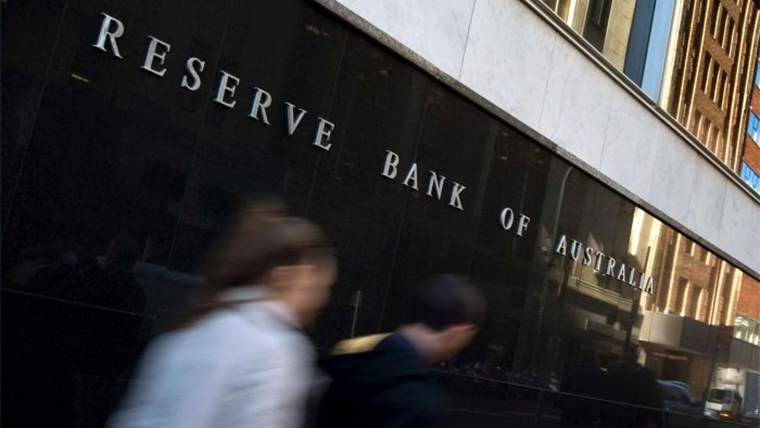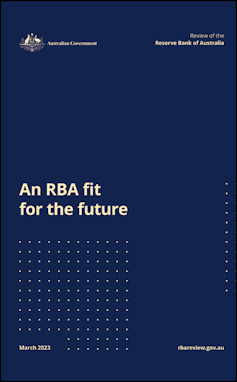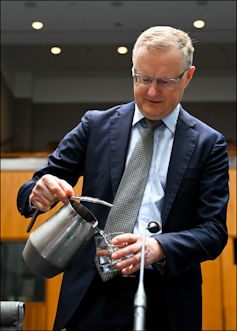
By Isaac Gross*
The review into the Reserve Bank of Australia has just been published by Treasurer Jim Chalmers, and it’s a blockbuster.
The review has made 51 recommendations including:
-
taking away power over interest rates from the Reserve Bank board (which has traditionally been dominated by non-economists, usually corporate executives) and devolving it to a panel of experts
-
reducing the number of decision-making meetings from 11 to eight per year
-
boosting the transparency of its decision-making process and holding it more accountable for those decisions.
Chalmers offered in-principle agreement to all 51 of the panel’s recommendations and would be seeking support from the Opposition for any legislation needed to implement them. The review has briefed Opposition Treasury spokesman Angus Taylor on its thinking.
Chalmers set up the three-person review in July 2022, appointing Carolyn Wilkins, a former senior deputy governor of the Bank of Canada, Renée Fry-McKibbin, of the Crawford School of Public Policy at the Australian National University, and Gordon de Brouwer, a specialist in public sector reform.
What was the problem?
While the apparent nature of the problem has changed over time, its root cause remains the same.
When the concept of the review was first mooted in 2020, the economy was in a bad state with inflation well below the bank’s target band of 2-3% and economic growth anaemic.
As a result, wage growth was too low and unemployment too high.
The most likely explanation is that the bank was focused too much on stabilising the financial system and too little on boosting the economy.
The bank was setting interest rates using its gut instead of its brain, in an almost literal sense – it was not doing what its computer model suggested it should do.

As the inquiry started, the problem had flipped. Inflation was too high.
But the underlying problem – that the board was populated by monetary policy amateurs rather than experts – remained the same.
The review concluded that monetary policy is a complex area of public policy and is best run by a team of experts who are highly informed about the current state of the economy.
Just as we have the country’s smartest legal minds on the High Court of Australia and our best health practitioners setting vaccine policy, it felt we should have Australia’s best macroeconomic minds running monetary policy at the Reserve Bank of Australia.
This lack of reliance on expertise might help explain why the bank made the ill-fated decision to indicate that interest rates would remain near 0% until 2024.
During the pandemic, bank staff explicitly recommended against forecasting how long interest rates would remain at 0%.
But the bank board ignored this advice and instead set out a three-year projection for how long rates would stay low.
When the economy recovered far quicker than expected and interest rates had to rise, many Australians interpreted the about-face as a broken promise.
Culture club
The review says former and current staff have told it the bank’s culture is hierarchical and risk-averse.
It is obviously less than ideal to have an important institution in which diversity of thought is discouraged and staff feel unable to speak up.
Accordingly, the review has recommended that the bank improve its culture by appointing a chief operating officer with a mandate to open up the bank up to new ideas and staff and break down silos within the bank.
What’ll this mean for rates?
Whatever is changed as a result of the review, there are unlikely to be significant changes to its current approach of keeping interest rates relatively high.
Rates will remain high for as long as inflation is projected to stay above the 2-3% target band. The latest official inflation reading was 7.8%. It will be updated next Wednesday.
The review considered whether or not the 2-3% target remains optimal and concluded that it does. It considered alternatives such as a higher inflation target or targeting nominal gross domestic product, and found them lacking.
It recommends that a new monetary policy board meet eight times a year, rather than the 11 times the present board meets. It says this will give the external expert members of the board greater scope to “do deeper and better preparatory work for each meeting”, helping them make better decisions.

What about RBA Governor Philip Lowe?
A review that found the bank was in good working order would have been a good reason to reappoint the present governor, whose five-year term ends in September.
The scale of the changes recommended by the review is large – there is an entire section devoted to a year-long implementation process.
The government might well decide that Lowe is the right person to carry out that process and that his term should be extended rather than dropping his successor into the middle of it.
However Chalmers plans to handle it, the review he commissioned has ushered in a revolution at the bank – one that will hopefully make it stronger, smarter and better-placed to serve the Australian people.![]()
*Isaac Gross, Lecturer in Economics, Monash University. This article is republished from The Conversation under a Creative Commons license. Read the original article.
12 Comments
I got really excited there. I thought they were recommending taking the power to set prices (in this case, interest rates) away from central planners. But alas, it's just a committee name change.
Monetary Policy limps on :(
The new "panel of experts" will consist almost entirely of commercial bankers, mark my words.
It's pretty typical for Reserve Banks to under-adjust rates through the economic cycle. It seems often Reserve Banks don't trust data, they like to do what they perceive as "playing it safe" and see what happens before belatedly moving.
On my part I'd want at least one demographer and a process engineer. Demography is playing an increasing part in economics with our population rapidly aging and retiring. Process engineers have a keen eye on the implementation of technologies to industrial processes that cause the increases in efficiency that drive deflation in consumer prices.
A demographer with Actuarial experiance would be good. A trans or lesbian person of indigenous heritage would help the new commitee meet its diversity targets. I guess if we cannot get all of that in one person we should just go for the diversity stuff.
The RBA’s billion-dollar blunders, and why it’s still paying for them
The review of the Reserve Bank outlines how and why Australians are paying a high price for the central bank’s pandemic policy mistakes.
This headline illustrates the difference between Australia and NZ... Aussie has an independant media (AFR) capable of questioning those at the levers of power, I cannot see this happening in the NZ media as we sadly focus on man swims in rhino poo pool stories...... Chris Trotter, its not just about debate, its about STARTING the debate.
Meanwhile Robbo and Orr are slapping each others backs crowing about the great pandemic response, world leading even.....
Jacinda was cunning starting the royal commision on the covid response so late in the electroal cycle.
I can see the demographer part being useful, but the comment on diversity sounds like a pisstake.
Getting diversity on governing committees is useful because of the different perspectives that different people bring, alongside the complementary skill sets they contribute.
If your comment reflects an interpretation of how one might get greatest ROI from a committee through tokenistic diversity, you have been ill advised.
You can have a bipoc rainbow person that thinks like a corporate sheep, and if that's the token 'diverse' person you'll still have poor governance through groupthink.
Let's promote better choices through diversity of perspectives
Fair cop ya got me, but any of us who work in corporates see this sh^%t EVERY DAY. Have to have this diversity of candidates, have to have structure of interview panel.... best able person for the job went out the window some time ago. I think diversity really helps present alternate views, but not at the cost of competence. Governance is the same...... In other news I think I heard on the radio last night that the RBA review now allows the RBA to directly call out the inflationary impacts of federal policy... thats a smart move, here Orr has to dance around this issue with the media. Philip Lowe probably needs to renew his LinkedIn and spruce up that profile.....
"Just as we have the country’s smartest legal minds on the High Court of Australia and our best health practitioners setting vaccine policy, it felt we should have Australia’s best macroeconomic minds running monetary policy at the Reserve Bank of Australia"
Meanwhile, in NZ "...Aside from the existing RBNZ chair, Professor Neil Quigley, no one appointed to the newly constituted RBNZ board on July 1, 2022, has any identified economics expertise. And none have first-hand banking industry or prudential regulatory experience."
https://www.nzinitiative.org.nz/reports-and-media/opinion/flawed-rbnz-b…
Go to the companies office and look at who owns the NZ initiative.
Look at common directorships Barbara Chapman holds….NZME, Fletchers,BNZ etc
then draw your own conclusions about how much you would trust their word.
https://croakingcassandra.com/2023/04/03/mpc-members/
More ad hominem logical fallacies fyi.
In the grand scheme of "Blame the dead guy!" this is a symbolic as Jacinda Ardern retiring.
Interest rates are easy to adjust - on the downside, but hard to reverse, until it's far too late. And it is.
So RBA board who sets the interest rate were useless; but RBA governor was good and will still continue his position???
And governor has no say in interest rates?? WOW.. these are new revelations
RBA lets the fox among the CB chickens.
Wonder whether other countries in the West will do their own reviews of their own CB Chick ?
We welcome your comments below. If you are not already registered, please register to comment
Remember we welcome robust, respectful and insightful debate. We don't welcome abusive or defamatory comments and will de-register those repeatedly making such comments. Our current comment policy is here.